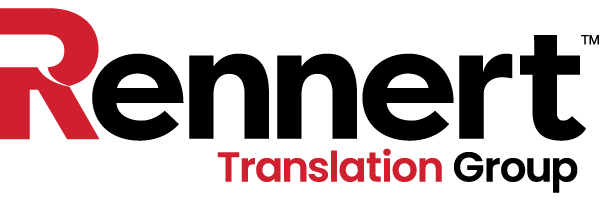Translation Tips for Marketing Professionals
The experts at Rennert Translation Group review best practices for a smooth translation process and cross-cultural marketing success.
Translation projects are very beneficial to companies, they really can enhance a brand and help the company reach new markets and potential customers. However, they can also be frustrating to marketing communicators. Typically, the English material that would require translation is left to the last minute and just in time for translation. Graphic artists, copywriters, sales managers, project managers, and interns may have all had to work on the material at some point. As translation is always the last part of the project cycle, time and patience are often in short supply. As a result, the copywriter or sales manager is left scrambling to get translation quotes, at rush-prices with tight deadlines looming.
Costly delays most often occur when production details are not effectively communicated among the key players. So, below we offer you some general advice from our cross-cultural experts on writing translation-ready English marketing documents and give you our advice on how to avoid costly pitfalls.
Writing English for the World. Preparing a document in English for translation to other languages.
A superior translation mirrors not only the content but also the style, of the source document. When you are writing English copy that will be translated for a global audience, it is important to communicate your message in a clear, succinct manner.
- Write in an active, not passive voice. Use short, clear sentences, and eliminate ambiguity. If you use acronyms, spell out the full phrase the first time you use it. What is obvious to you may baffle a customer in Madrid or a sales associate in Beijing.
- When is an NFL football pun not effective? When you use it in every other country outside of the United States. Examine your English documentation from the perspective of an international reader, and eliminate regional colloquialisms and other informal vocabulary that may not translate well.
- English is the lingua franca of international business. Around the world, people of all cultures are peppering their native languages with English terms and phrases. This does not lessen the value of translation-it is simply a reflection of doing business in a multilingual marketplace. Give some thought to your key English marketing terms and product names-which would you prefer to remain in English, and which should be translated? Discuss the topic with your translation company's project manager. He or she can offer you some general guidelines, but it is your product or service that will be exported. Ask your international salespeople for their opinions-they will be using the translations in the field, so they should feel comfortable with the terminology.
- If you do not know the difference between a centimeter and a milliliter, you might think it safer to stick with your "English" measurements in your technical sales literature. That wouldn't be true. Even the British no longer use English measurements. Your inches, feet, and quarts should be converted to metric equivalents for overseas markets.
- Electricity outputs vary around the world. The most common are 110V and 220V. Similarly, video formats are often country-specific, and most DVDs are artificially restricted to play only in a few countries. Read your copy from the perspective of an outsider trying to look in--potential customers won't buy your product unless they are sure it will work properly in their part of the world.
- Did your office in London send you a sales brochure with a request to have it translated into Russian? Date formats vary around the world; make sure everyone is on the same calendar page. Using a notation like 7/5 can be confusing -- is that July 5, or May 7? The safest choice is to spell out the name of the month-if space is tight, an abbreviation is fine.
- Toll-free 800 numbers do not work outside of North America. Provide alternative telephone numbers or other customer service options for your overseas customers.
- Don’t make the mistake of running your materials through a website to translate them, this could prove very costly, as it may contain many mistakes which a trained expert would look out for.
